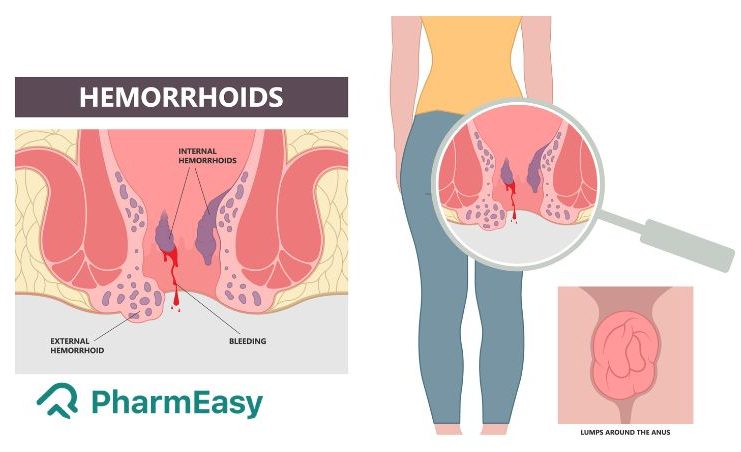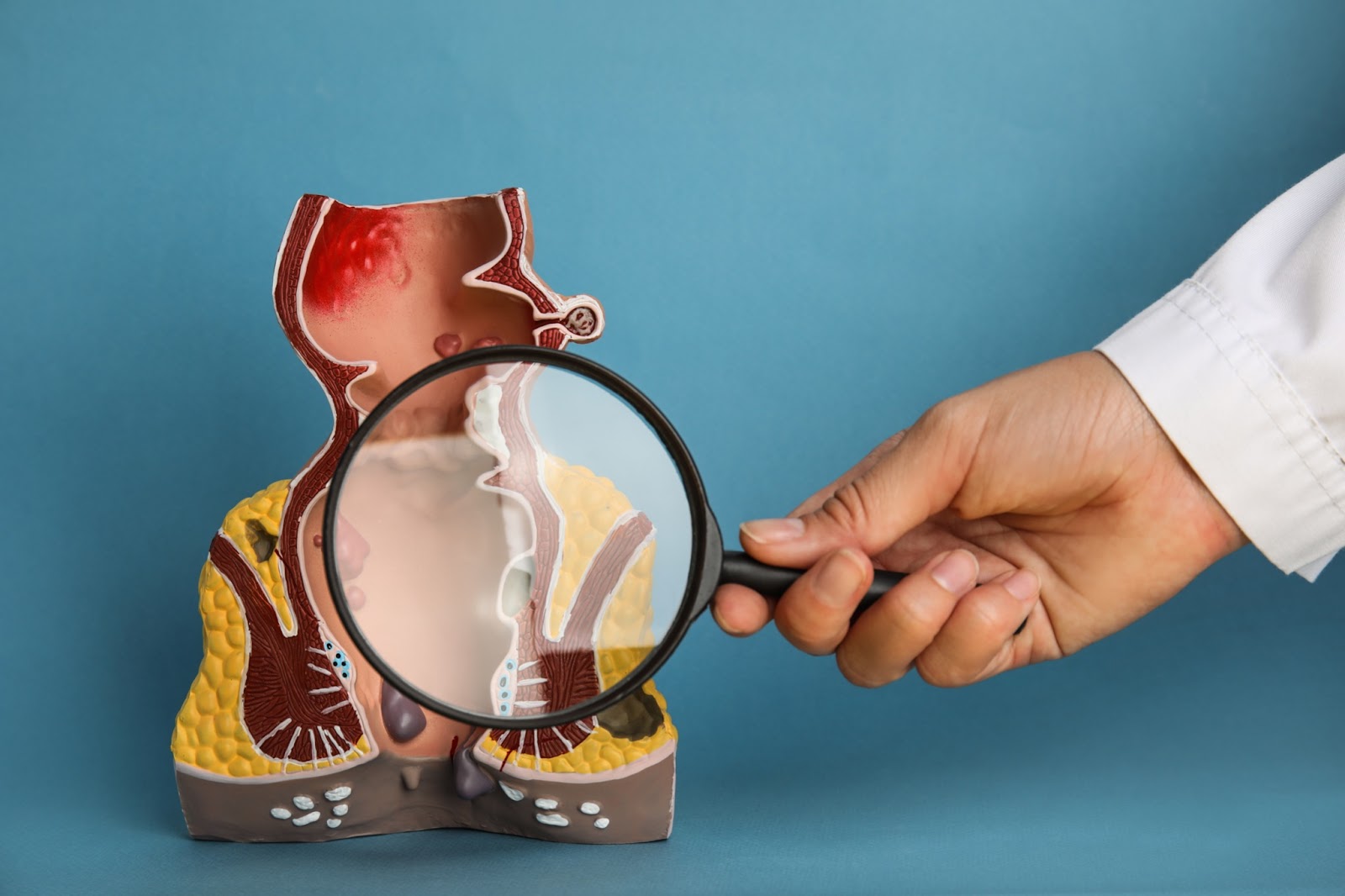Hemorrhoids are a common condition that affects many individuals. Although they often resolve on their own, there are cases where seeking medical care becomes necessary for faster relief and to prevent future occurrences. In this article, we will explore the signs that indicate it’s time to consult a doctor for hemorrhoids and the various treatment options available.
Understanding Hemorrhoids
Hemorrhoids are vascular cushions located in the rectum that play a crucial role in controlling bowel movements. When these cushions become inflamed and swollen due to increased pressure, they can cause discomfort, pain, itching, and bleeding. Several factors can contribute to the development of hemorrhoids, including low-fiber diets, straining during bowel movements, prolonged sitting, pregnancy, obesity, and lifting heavy objects with incorrect form.
There are two types of hemorrhoids:
-
Internal hemorrhoids: These are located inside the rectum and are typically less painful than external hemorrhoids.
-
External hemorrhoids: These are found under the skin around the anus and tend to be more painful.
Signs to Seek Medical Care for Hemorrhoids
While some hemorrhoid symptoms may resolve with self-care measures, there are instances where medical attention is crucial. Here are five signs that indicate it’s time to seek medical care for hemorrhoids:
1. Bleeding during Bowel Movements
If you notice bleeding before, during, or after bowel movements, it’s essential to consult a doctor. While bleeding can be associated with hemorrhoids, it can also be a sign of something more serious, such as colon or anal cancer. Contacting your doctor for an accurate diagnosis is crucial to rule out any life-threatening conditions. Your doctor can provide appropriate treatment, relief, and advice to prevent future hemorrhoid occurrences.
2. Discomfort Persists for a Week
When discomfort, pain, or itching caused by hemorrhoids persist for a week despite self-care measures, it’s time to seek medical attention. Although some symptoms may resolve on their own, others require medical intervention. Your doctor can recommend conservative treatments like dietary and behavioral changes or in-office procedures such as rubber band ligation. In more severe cases, surgery may be necessary.
3. Worsening Symptoms
If your hemorrhoid symptoms continue to worsen, it’s crucial to consult a doctor. While home remedies may provide temporary relief, they may not address the underlying issue. Seeking medical care allows your doctor to provide appropriate treatment for your hemorrhoids and offer guidance on diet, hydration, and bathroom habits to prevent future flare-ups.
4. Presence of a Bulge
If an internal hemorrhoid becomes severely inflamed, it can prolapse or fall outside the anus. While it may retract on its own in many cases, there are instances where medical intervention becomes necessary. If the prolapsed hemorrhoid cannot be easily pushed back in or causes pain and bleeding, early treatment from a doctor is vital to prevent further complications.
5. Uncertain Discomfort
If you experience bleeding, discomfort, or pain in the anal region and are unsure if it’s caused by hemorrhoids, it’s best to consult a doctor. This is especially important if you don’t have a history of hemorrhoids. A medical professional can accurately diagnose the cause of your symptoms, ensuring that you receive appropriate treatment. It’s better to have an expert confirm that you don’t have a more serious condition like cancer than to avoid seeking care due to discomfort.
Treatment Options for Hemorrhoids

Once you’ve consulted a doctor for your hemorrhoids, they will recommend appropriate treatment based on the severity of your condition. Treatment options include:
-
Lifestyle changes: Increasing fiber intake, drinking more water, and avoiding prolonged sitting can help alleviate symptoms and prevent future hemorrhoids.
-
Over-the-counter medications: Your doctor may suggest using topical creams, ointments, or suppositories to reduce inflammation and provide temporary relief.
-
Rubber band ligation: This in-office procedure involves placing a small rubber band around the base of the hemorrhoid to cut off its blood supply, causing it to wither and fall off.
-
Sclerotherapy: This procedure involves injecting a chemical solution into the hemorrhoid, causing it to shrink and eventually disappear.
-
Infrared coagulation: In this procedure, infrared light is used to coagulate the blood vessels in the hemorrhoid, causing it to shrink.
-
Hemorrhoidectomy: In severe cases, surgical removal of hemorrhoids may be necessary.
Prevention of Hemorrhoids
Preventing hemorrhoids is possible by incorporating certain habits into your lifestyle. Here are some tips to reduce the risk of hemorrhoid flare-ups:
-
Maintain a high-fiber diet: Consuming foods rich in fiber, such as fruits, vegetables, whole grains, and legumes, can help regulate bowel movements and prevent constipation.
-
Stay hydrated: Drinking an adequate amount of water throughout the day promotes smooth bowel movements and prevents straining.
-
Practice good bathroom habits: Avoid straining during bowel movements and spend no more than a few minutes on the toilet.
-
Exercise regularly: Engaging in physical activity improves overall bowel function and helps prevent constipation.
-
Avoid prolonged sitting: Take breaks and move around if your occupation requires extended periods of sitting.
-
Maintain a healthy weight: Obesity can contribute to the development of hemorrhoids, so maintaining a healthy weight is important.
-
Avoid lifting heavy objects with incorrect form: Proper lifting techniques can prevent excessive strain on the rectal area.

In Conclusion
While hemorrhoids are a common condition, seeking medical care is necessary in certain situations. If you experience bleeding during bowel movements, persistent discomfort, worsening symptoms, the presence of a bulge, or uncertainty about the cause of your discomfort, consult a doctor. They can provide appropriate treatment, relief, and guidance to prevent future occurrences. Remember to incorporate preventive measures into your lifestyle to reduce the risk of developing hemorrhoids.
